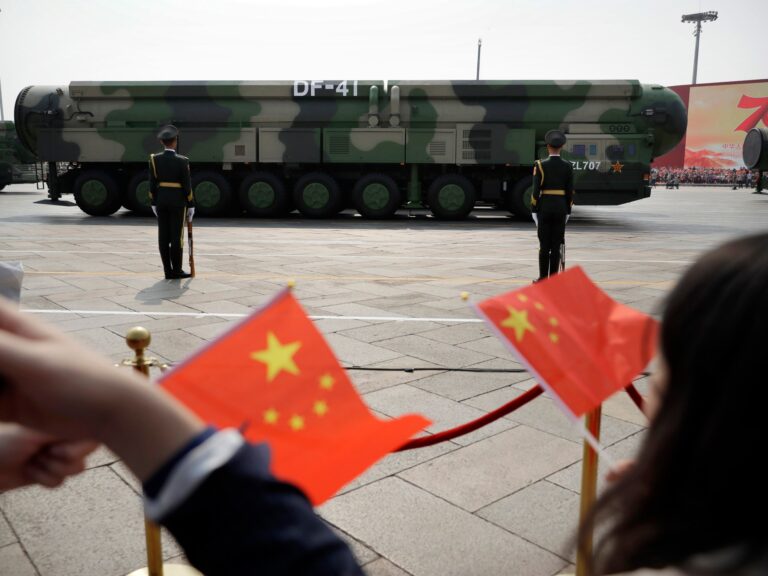Beijing has said U.S. arms sales to Taiwan have “undermined the political atmosphere” conducive to continuing nuclear nonproliferation negotiations.
China has suspended nuclear non-proliferation and arms control talks with the United States in protest over Washington’s arms sales to the self-ruled island of Taiwan.
The United States on Wednesday called Beijing’s decision “regrettable,” while analysts said the move was a potentially serious setback for global arms control efforts.
China and the United States began talks on nuclear weapons in November in an attempt to ease distrust ahead of a summit between Presidents Xi Jinping and Joe Biden.
No further dialogue has been publicly announced since, with a White House official urging Beijing in January to respond “to some of our more substantive ideas on risk reduction.”
A Chinese Foreign Ministry spokesman said Wednesday that U.S. arms sales to Taiwan, a territory it claims, had “seriously undermined the political atmosphere necessary for continuing arms control consultations.”
“Accordingly, the Chinese side has decided to suspend discussions with the United States on a new round of consultations on arms control and non-proliferation,” spokesman Lin Jian said at a regular news briefing in Beijing.
“The responsibility lies entirely with the United States,” he said.
Lin added that China was willing to maintain communication on international arms control, but said the United States “must respect China’s core interests and create necessary conditions for dialogue and exchanges.”
The United States transferred its diplomatic recognition from Taipei to Beijing in 1979, but has remained Taiwan’s most important partner and largest arms supplier, triggering repeated condemnation from China.
Taiwan has been protesting for four years against the intensification of Chinese military activities near the island, including the almost daily missions of Chinese warplanes and ships.
In June, Washington approved two military sales to Taiwan worth about $300 million, mostly for spare parts and repairs for the island’s F-16 fighter jets.
Risks of an arms race
U.S. State Department spokesman Matthew Miller criticized China’s move, saying Beijing had chosen to follow Russia’s lead in asserting that arms control engagement could not continue while there were other challenges in bilateral relations.
“We believe this approach undermines strategic stability. It increases the risk of arms race dynamics,” Miller told reporters.
“Unfortunately, by suspending these consultations, China has chosen not to pursue efforts that would manage strategic risks and prevent a costly arms race, but we, the United States, will remain open to developing and implementing concrete risk reduction measures with China,” he said.
The Biden administration advocates a policy of “compartmentalization,” in which discussions on nuclear arms control are separated from other contentious Sino-U.S. issues.
The Chinese move comes just over a month after the Biden administration said the United States may need to deploy more strategic nuclear weapons to deter growing threats from Chinese and Russian arsenals.
Daryl Kimball, executive director of the human rights group Arms Control Association, told Reuters that the United States, Russia and China are legally bound, as signatories to the Nuclear Non-Proliferation Treaty – the cornerstone of global arms control – to “engage in negotiations to prevent an arms race.”
“The only way to achieve this is through serious dialogue, and Russia’s refusal to do so and China’s decision to do so are very serious setbacks,” he said.
The United States has an arsenal of about 3,700 nuclear warheads, of which about 1,419 are deployed strategic nuclear warheads. Russia has about 1,550 deployed nuclear weapons and, according to the Federation of American Scientists, an arsenal of 4,489 nuclear warheads.
Washington estimates that China has 500 operational nuclear warheads and will likely have more than 1,000 by 2030.
U.S. officials have expressed frustration at Beijing’s lack of interest in discussing measures to reduce the risks associated with nuclear weapons. But Beijing has long argued that the United States already has a much larger arsenal.


